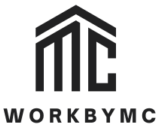Company policies play a critical role in governing operations, fostering workplace harmony, and ensuring compliance with legal requirements. However, as industries evolve and regulations change, these policies can quickly become outdated. Regularly reviewing and updating your business’s policies is essential to keep them effective and relevant. But how often should this process happen? Several factors come into play when determining the frequency and approach to reviewing company policies.
The Importance of Regular Policy Updates
Policies serve as a roadmap for your business, guiding employees on expectations, behavior, and compliance. Outdated policies can lead to inconsistencies, legal exposures, and uncertainty among staff. For instance, changes in technology, employment laws, or industry standards can render older policies inadequate or inappropriate.
Spending some time on corporate policy development ensures your business remains compliant with current regulations and avoids potential legal or financial risks. It also provides an opportunity to clarify outdated language, incorporate feedback from employees, and ensure alignment with your company’s goals and values.
Factors to Consider When Determining Update Frequency
There is no one-size-fits-all answer to how often policies should be reviewed and updated. However, the following factors can help you establish a guideline for your business:
- Legal and Regulatory Changes
Employment laws, safety standards, and industry-specific regulations can change frequently. Staying up to date with these changes is vital. Policies affected by legislation—such as anti-discrimination, sexual harassment, or wage laws—should be reviewed immediately after a major legal update to maintain compliance.
- Growth and Structural Changes
Rapid growth or organizational restructuring can introduce new challenges or risks that existing policies may not address. For example, expanding into new markets, adopting remote work, or introducing new technology might require further corporate policy development and revisions to reflect updated practices.
- Feedback from Employees or Incidents
Employee feedback can reveal areas where policies are unclear or ineffective. Similarly, workplace incidents, such as safety breaches or conflicts, may signal a need to revisit certain policies to prevent similar occurrences in the future.
- Scheduled Reviews
Establishing a regular review schedule creates consistency and keeps policies current. Many businesses opt for annual or biannual reviews, while others may conduct smaller reviews quarterly for high-risk areas like safety or compliance.
Best Practices for Maintaining Up-to-Date Policies
Updating company policies is not just about timing; the process itself requires planning and thoroughness. Here are some best practices to ensure your policies stay relevant and effective:
- Assign Ownership
Designate a person or team responsible for managing the policy review process. This may include HR personnel, legal advisors, or department heads. Having a clear point of accountability helps streamline updates and ensures policies are implemented consistently.
- Stay Aware of Trends and Legal Updates
Staying informed about industry trends and legal developments is crucial for timely updates. Subscribing to newsletters or joining industry associations can help ensure you’re aware of changes that may influence your business practices.
- Consult Legal and HR Experts
When making significant changes, it’s wise to consult legal or human resources experts. They can offer guidance on how to draft compliant policies while addressing operational needs effectively.
- Communicate Updates Clearly
Once policies are revised, communicate the changes to your employees promptly and thoroughly. Conduct training sessions or provide clear documentation to ensure everyone understands the new policies and their implications.
- Document Review Dates
Maintaining a record of when each policy was last reviewed or updated helps you keep track of potential upcoming reviews. This can be particularly helpful for audits or compliance assessments.
Striving for Balance
While routine reviews are necessary, avoid the temptation to overhaul policies too frequently or make changes without ample consideration. Overburdening employees with frequent updates can create confusion and resistance. Instead, focus on striking a balance between ensuring compliance and maintaining operational stability.
Regularly updating your company policies strengthens your business’s foundation, ensuring it remains resilient and adaptable in a changing world. Whether it’s addressing new legal requirements, responding to workplace feedback, or revisiting policies on a set schedule, staying proactive is key with corporate policy development. By prioritizing this process, you’ll not only protect your business from potential risks but also foster a productive and engaged workplace for your employees.


